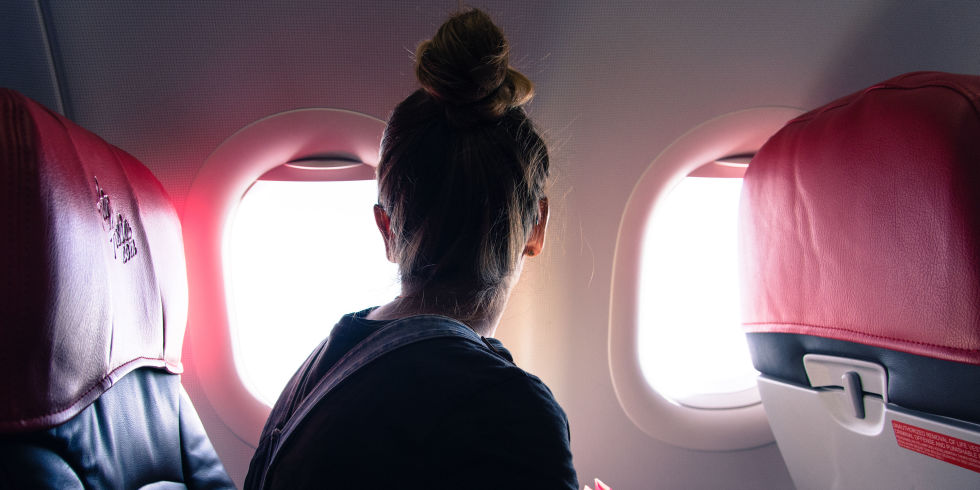Flying, especially long haul, can leave you feeling absolutely pooped. But it’s not just jumping from timezone to timezone that leaves you feeling a bit knocked out; travelling in a plane can impact your body in a number of ways.
Bupa’s UK Medical Director Dr Steve Iley points out some of the main ways air travel can impact our bodies, and how best to deal with them:
1. Bloating
‘The drop in cabin pressure at altitude can cause the gases in your stomach to expand, leaving you feeling bloated and uncomfortable. Avoiding fizzy drinks and gas causing foods such as beans before boarding can help you feel more comfortable when in the air. Drinking plenty of water is always a good idea, but if you fancy something a bit different, peppermint tea has been shown to reduce bloating.’
2. Deep-vein thrombosis
‘Sitting for a long time on a flight can lead to poor circulation and swollen feet. It can also increase your risk of developing deep-vein thrombosis (DVT), a blood-clotting condition often associated with prolonged travel. This can often take the form of pain and swelling in the leg and, if left untreated, can lead to pulmonary embolism. Keep hydrated by regularly drinking water and avoid excessive alcohol consumption, which can help to mitigate the risk of DVT.
‘To prevent excess swelling in your feet, make sure to keep moving. Try to walk down the aisle every so often. If this isn’t possible, move your feet up and down and side to side. This will help to get your blood moving, boosting your circulation. Wearing comfortable footwear that’s easy to slip on and off can help you to stay comfy if swelling occurs, and if you have poor circulation consider using flight socks.’
3. Jet lag
‘It might not seem like a serious issue, but jet lag can cause problems such as exhaustion and trouble concentrating, along with memory problems, constipation, indigestion and diarrhoea.
‘Staying hydrated is essential to decreasing the effects of jet lag, so drink plenty of water. Zeitgeber is the name for the natural influences that regulate our body clock such as light, eating and exercise. Try to adjust these to your destination as quickly as possible helps minimise jet lag –getting some sleep may help.’
4. Nausea and sickness
‘The reduction in air pressure on a flight may cause you to feel dizzy, nauseous or have a headache. Plus, the air in the cabin is recycled and lacks moisture, making you feel more dehydrated than normal.
‘To avoid picking up illness on your trip, make sure to wash your hands regularly, particularly before eating and carry a pot of hand sanitiser with you. The cabin air is filtered but you can still get bugs from those around you sneezing or coughing in your direction.’
5. Back pain
‘Sitting down for long periods of time, especially in a confined space and at high altitude, can have a negative impact on your health and wellbeing, but maintaining a good posture can help. Try to sit back, with your shoulders straight back rather than rounded and with both feet flat on the floor. Avoid crossing your legs or twisting your spine.
‘If you’re cold, your muscles, tendons and ligaments can contract, which can lead to strain, and increased risk of back injury. Getting up and moving around regularly will help to reduce the pressure on your lower back. Walk up and down the cabin and try doing some stretches at least every hour, particularly if you’re already suffering with a bad back.’
6. Feeling more drunk than usual after alcohol
‘It’s not as much fun, but avoid or limit your alcohol consumption on an aeroplane. Because of the low pressure and dry air in the cabin, you may feel more intoxicated than usual.’












